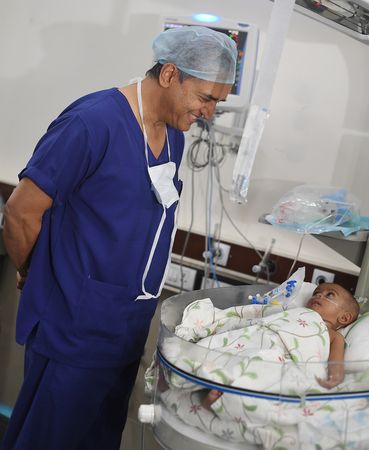LONG AGO, WHEN Dr Devi Shetty, founder of Narayana Health, said that virtual consultations with doctors were going to be a reality, I didn't believe him. Time has proved Shetty right. He recently told THE WEEK that quality care will one day be affordable for even the poorest of the poor, and I listened in disbelief again. "Ten years from now, India will be the first country in the world to dissociate health care from wealth. There will also be a financial intermediary offering health insurance for the working class, middle class, and upper-middle class," said Shetty.
Shetty defines quality care as a state wherein "the patient is safe during the treatment, the outcomes are good, the family is happy with the service and the professionals who are offering services are happy". Patient safety is the top priority. "According to The Joint Commission’s report, 65 per cent of sentinel events happening in hospitals in the US that generally lead to death are due to communication failure between health care providers," said Shetty. The Joint Commission, an American health care NGO, defines a sentinel event as any unanticipated event in a health care setting resulting in death or serious injury to a patient, not related to the patient's illness. "Things are no different in India. We need to change the way our hospitals are run. We have to make big investments in electronic medical records and hospital management system," he said.
Shetty returned to India after completing his studies in England in 1989, but became disillusioned with the health care system here. But now, he says, we are far ahead of where we were. He points to our journey towards quality care for all, which has been marked with milestones like the Yeshasvini Cooperative Healthcare Scheme, the Ayushman Bharat Yojana and the 1994 legislation that made organ donation after brain death possible.
However, when it comes to skilled manpower, we are still lagging. "Our biggest problem is the shortage of skilled manpower. We do not have that many trained doctors, nurses or paramedics. Building equipment is no big deal. Anybody can buy it. In most hospitals, the ICU is left in unskilled hands at night. We do not have enough intensivists. So unless the medical education gets liberated, there will not be improvement in quality," said Shetty.
Quality health care will be accessible to the poor only if there is a financial intermediary to pay for it. "That does not exist in India. Today, health insurance is very expensive. There has to be low-cost health insurance. That will dramatically transform the way health care is delivered," he added.


